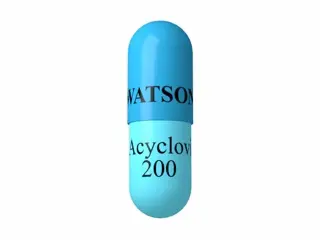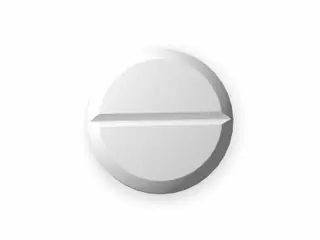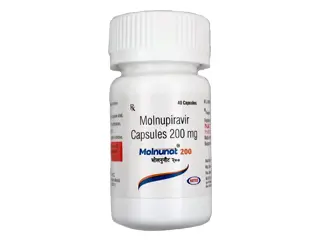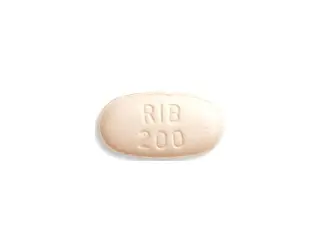Antiviral

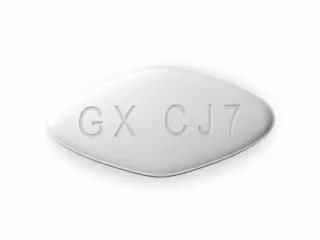
Find effective antiviral medications to help prevent and treat viral infections. Shop trusted brands and fast-acting formulas designed to support your health and recovery. Reliable protection is just a click away.
The category "Antiviral" includes medications designed to combat viral infections. These drugs work by inhibiting the replication of viruses, helping the immune system fight off infections. Many antiviral drugs target specific viruses, such as herpes simplex, hepatitis, influenza, and HIV.
One of the most popular antivirals is Aciclovir. It is commonly used to treat herpes simplex virus infections, including genital herpes and cold sores. Aciclovir is available in oral form and as acyclovir cream 5% for topical use. The cream helps reduce symptoms of cold sores and speeds healing time. Oral aciclovir works by stopping the virus from multiplying and can lessen the severity of outbreaks.
Zovirax is a well-known brand of aciclovir. It shares the same active ingredient and is effective for treating herpes simplex and varicella-zoster virus, including shingles and chickenpox. Many patients report that Zovirax helps control outbreaks and reduces pain and itching.
Famvir (famciclovir) is another popular antiviral medication. It is often prescribed for shingles, genital herpes, and cold sores. The drug works similarly to aciclovir but tends to have a longer half-life, meaning fewer doses are needed daily. Many users note Famvir’s convenience and effectiveness in reducing outbreak duration.
Valtrex (valacyclovir) is a prodrug of aciclovir and offers improved absorption when taken orally. This medication is favored for managing herpes infections and for suppressive therapy to reduce outbreak frequency. Valtrex is praised for its ease of use and ability to lower herpes transmission risk among partners.
Aldara (imiquimod) cream is a topical antiviral and immune response modifier. It is mostly used to treat external genital warts caused by human papillomavirus (HPV). Aldara helps stimulate the immune system to fight the virus and clear the warts. Patients often see improvement after a few weeks of treatment.
Copegus (ribavirin) is an oral antiviral agent. It is mainly used with other medications to treat chronic hepatitis C virus (HCV) infection. Ribavirin works by interfering with viral RNA synthesis. However, it can cause side effects like anemia, so patients need to be monitored carefully during treatment.
Rebetol is another brand of ribavirin. It is combined with interferon or other antiviral drugs to boost the chances of clearing hepatitis C infection. Many patients undergoing treatment with Rebetol report side effects but also significant improvement in viral load levels.
Epivir (lamivudine) is used to treat hepatitis B virus (HBV) and HIV infections. It helps block viral replication by inhibiting reverse transcriptase. Epivir is often prescribed as part of combination therapy to avoid resistance. There is also Epivir HBV, a version targeted specifically for hepatitis B patients.
Sustiva (efavirenz) is a key drug in HIV therapy. It works by blocking the reverse transcriptase enzyme, crucial for viral replication. Sustiva helps reduce HIV viral load and improve immune function. However, it may cause side effects such as dizziness and vivid dreams.
Symmetrel (amantadine) is an antiviral used for influenza A virus infections. It also has applications in Parkinson’s disease treatment due to its dopaminergic effects. As an antiviral, Symmetrel blocks viral uncoating, preventing virus replication early in infection.
Molnunat is a newer antiviral medication designed to treat various viral infections. It works by targeting viral RNA polymerase enzymes, disrupting viral RNA synthesis. Early reports from patients show positive results in reducing symptoms and viral load.
Monoket is an antiviral sometimes used off-label in viral infections combined with other treatments. It helps improve blood flow and may support immune system function, although it is not a primary antiviral drug.
Plaquenil (hydroxychloroquine) has been used as an antiviral and immunomodulatory agent. Originally for malaria, it also shows activity against some viruses by preventing virus entry into cells. However, its effectiveness against viral infections varies and should be discussed with a physician.
In summary, antiviral medications cover a wide range of viruses and treatment strategies. Common drugs like aciclovir, valtrex, and famvir specifically target herpes viruses. Ribavirin products like Copegus and Rebetol focus on hepatitis C. Epivir and Sustiva are important in managing HIV and hepatitis B infections. Each drug has unique characteristics, dosing schedules, and possible side effects.
When choosing an antiviral medication, factors such as the type of virus, severity of infection, possible drug interactions, and patient health conditions are important. Many antivirals require early initiation to be effective. Patients should always follow medical advice when using these medications.
The availability of different forms, including pills, creams, and injections, allows flexible treatment options. Topical creams like acyclovir and Aldara are useful for local infections, while oral tablets are preferred for systemic viral diseases. Combination therapies are common for complex viral infections like HIV and hepatitis C.
Advancements in antiviral drug development continue to improve options for patients worldwide. Despite challenges like drug resistance and side effects, these medications remain critical tools in fighting viral diseases and improving patient outcomes.



